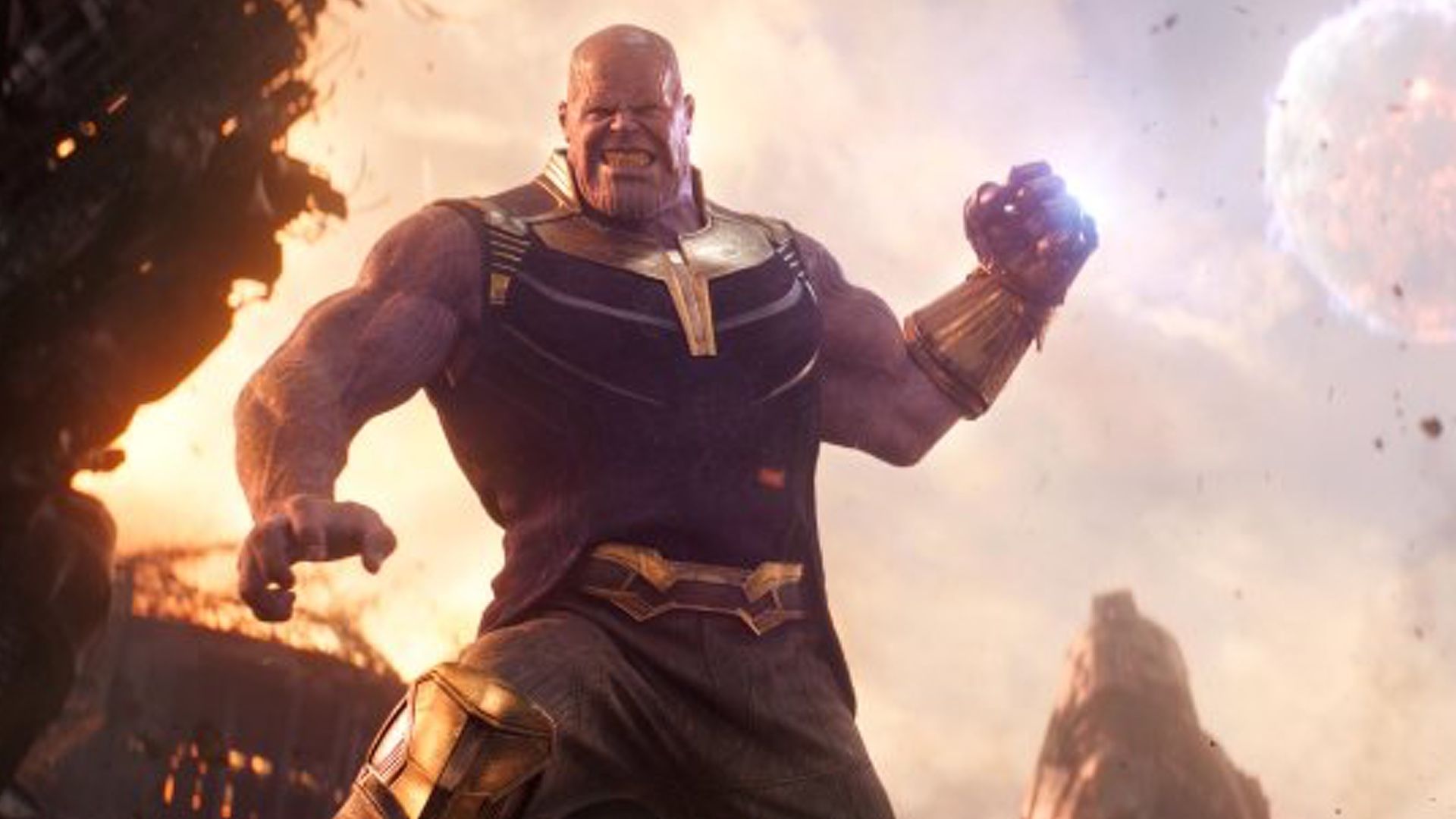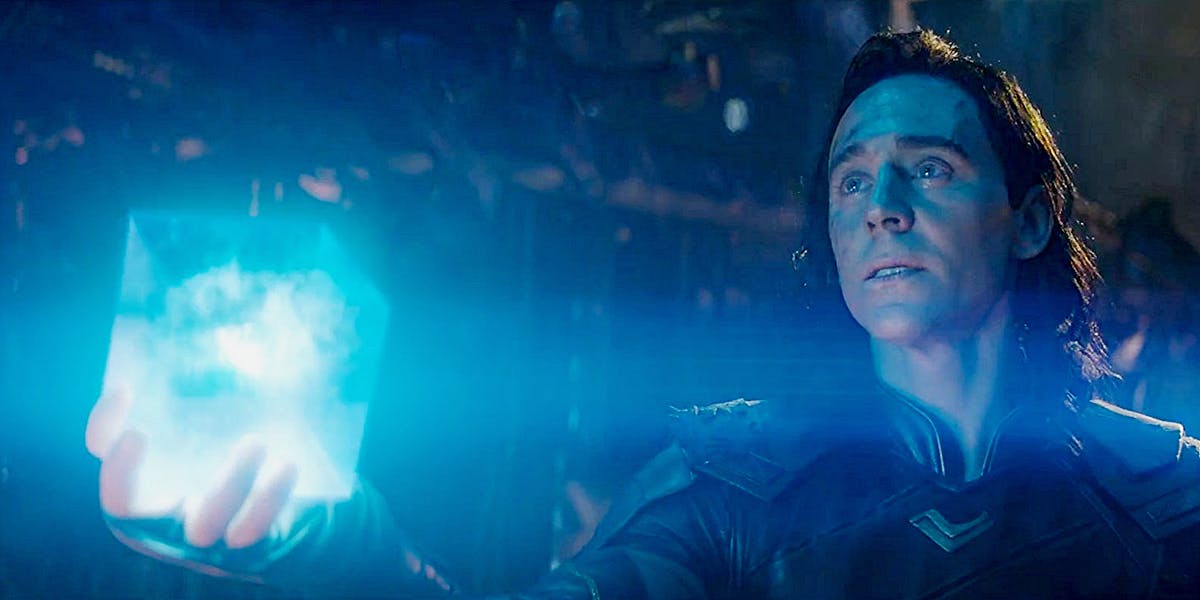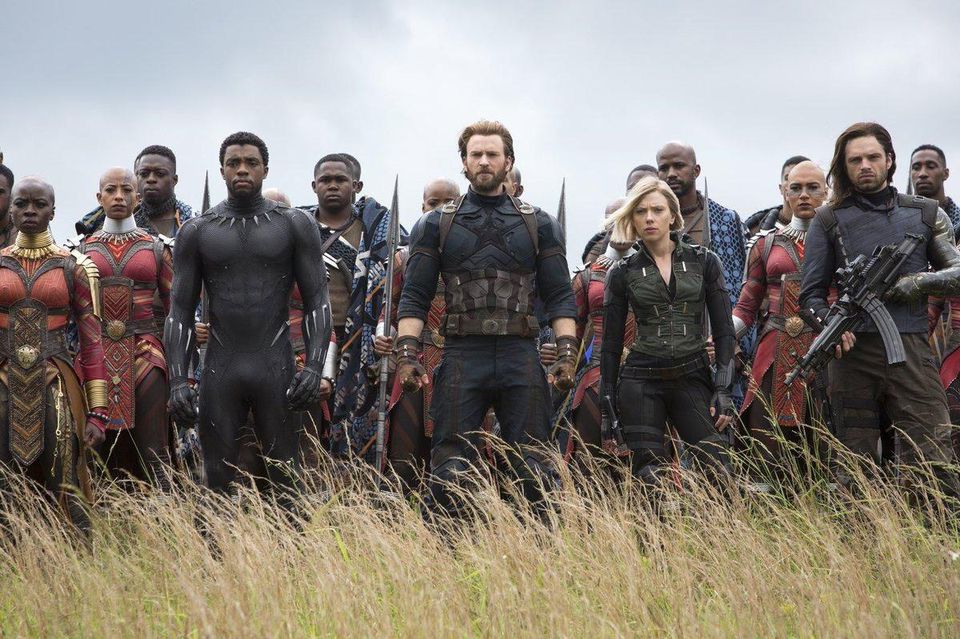Avengers: Infinity War’s True Superpower is Making Us Believe the Stakes
The Infinity Stones are the ultimate Chekhov's gun. In Avengers: Infinity War, the MCU finally pulls the trigger.
This article contains MAJOR Avengers: Infinity War spoilers. We have a spoiler free review here if you prefer.
One of the more difficult aspects of crafting a superhero movie narrative is making a superpowered character feel vulnerable—emotionally, physically, narratively. In a genre that is all about wielding power and setting the stage for many movies to come, how do you create a sense of real stakes?
Crafting stakes is doubly hard in the MCU, a franchise for which everyone knows the franchise’s full upcoming release schedule years ahead of time. (How can you be properly worried about Spider-Man when you know his next film is coming out July 5, 2019?)
This has been an issue with previous Avengers movies, which create massive stakes for the world at large, but in a way that never seems to truly touch its heroes. Sure, the gang is sad when loads of innocent civilians die, but they are safe in their promise of standalone film futures.
Impressively, this isn’t the case for Avengers: Infinity War, which does a far better job of setting the stakes (and following through on them) than any Avengers installment (and perhaps any other MCU movie) thus far. Let’s talk about how Infinity War manages to pull off this not-so-easy feat in a genre that makes it so difficult…

In setting stakes, it helps immensely that Infinity War is coming at the end of a 10-year narrative arc. Much of the publicity and discussion heading into Infinity War has centered around the MCU stars whose contracts are up, in particular Robert Downey Jr. and Chris Evans. In addition to Chris Hemsworth’s Thor and The Hulk (kind of), these are the characters who launched this narrative universe and, as we race closer to the end of Phase Three, the fates of Tony Stark and Steve Rogers are up-in-the-air in a way they never have been before.
Even though we know both Evans and Downey Jr. are set to appear in Avengers 4, it’s hard not to worry about them in Infinity War. It truly feels like anything could happen in a way the MCU has never quite been able to pull off before and might not be able to again for a very long time following the conclusion of this story in Avengers 4.
related article: Full Marvel Movie Release Schedule
Infinity War doubles down on the meta-stakes it has earned going into the film by giving us a truly harrowing opening sequence. The film begins with Thor’s distress message played over the Marvel Studios opening montage. What is usually a celebratory moment is chilling, becoming even more unsettling when we properly see what has happened to Thor’s ship filled with Asgardian refugees. Thanos and his minions have easily overtaken them. The ship is blown in half and Asgardians lie dying as Thanos monologues over them.
Our first glimpse of Thor is of the character supine and injured in the background, seemingly unable to get up. It’s a far cry from how we saw him at the beginning of the much lighter Thor: Ragnarok, captured but in complete control of the situation. That opening was meant to be reveled and, thus, we are never truly worried about Thor; this one is designed to worry us, and it does an excellent job. By pitting Thanos against both Thor and Hulk, arguably the strongest of the Avengers, and seeing them fall so far short, Infinity War immediately makes a statement: The Avengers are in over their heads. Also: Thanos’ hand is so freaking huge and could squish most people’s heads very easily.

The true narrative master stroke, however, comes in the death of Loki, one of the most popular and foundational characters of the Avengers universe. Loki has been around since Phase One, and even served as the chief antagonist in The Avengers. He has bumbled his way through a redemption arc of sorts in recent year. Most importantly, Thor loves his brother desperately. He is his last remaining family member, the person Thor assumes will be with him, annoying and possibly trying to kill him, for the next 1500 years. The death hits hard, and lets the audience immediately know that this movie is not messing around when it comes to consequences of, in particular, the emotional variety. (Because, really, what other kinds of consequences are there?)
In Infinity War, the ultimate consequence is grief. The disappearance of characters in Thanos’ culling is devastating to us, yes, because we care about the characters, but because we live out their losses through the people who love them best. Steve loses Bucky. Tony loses Peter. Okoye loses T’Challa. The list goes on.
If our deaths are something that happens to other people, as Steven Moffat noted in Sherlock, then this is the ultimate consequence, the ultimate stake. It’s what we should have felt every time one of the Avengers’ battles destroyed a city and countless lives along with it. It’s what the MCU wanted us to feel with Civil War, but never quite pulled off. This is what it feels like to lose, and the MCU has never communicated that feeling quite so effectively in what simultaneously feels like a broad stroke and something that is happening directly to each character (and each viewer).
Infinity War is a movie about the Avengers losing. It is Thanos’ happy ending. It is what it looks like when the heroes don’t save the day. Marvel makes exquisite use of a two-part movie here, leaving our remaining heroes at their most hopeless. They have failed in their effort to stop Thanos from gathering all of the Infinity Stones and, in doing so, have lost half of the souls in the universe. Perhaps even more horrifyingly, they have lost a soul they find irreplaceable.
And that’s how Infinity War really sets the stakes and follows through on them: Thanos’ culling isn’t something that happens at an abstract, astronomical level. This isn’t happening to the universe; this is happening to Steve and Tony and Natasha and all of the rest, in a way the MCU usually avoids (to its detriment) in other Avengers films. I like Agent Coulson as much as the next fan, but losing him in The Avengers devastates no one, viewer or character. Coulson’s death is designed as a motivation; the deaths in Infinity War are consequence.
related article: All of the Characters Who Die in Infinity War
The deaths that occur in Infinity War are ten years in the making, giving them an added weight. At the very beginning of the MCU, Marvel planted Chekhov’s gun in the form of the Infinity Stones. Infinity War is when they pulled the trigger.

It’s hard to imagine how the MCU can preserve this extremely heightened sense of stakes in Avengers 4. It’s actually just inconceivable that those lost in Thanos’ culling won’t come back, given that MCU stars like Black Panther and Spider-Man are amongst the missing. As painful as it will be to wait a full year for the conclusion to this story, I am excited to revel in this sense of stake and consequence because it seems necessary that Avengers 4 backtrack in some major ways.
That being said, it seems unlikely that both Tony and Steve will make it out of Avengers 4 alive. If Thanos had to trade a soul for the Soul Stone, then it seems likely that saving all of those lost in Thanos’ purge will also cost at least one of our foundational favorites. I just hope Avengers 4 is able to maintain this sense of consequence, loss, and sacrifice it managed to so effectively communicate and explore in Infinity War. The superhero genre has never felt quite so real as it does in Infinity War, where not even one of our superheros can escape the grief and loss that make us all human.
